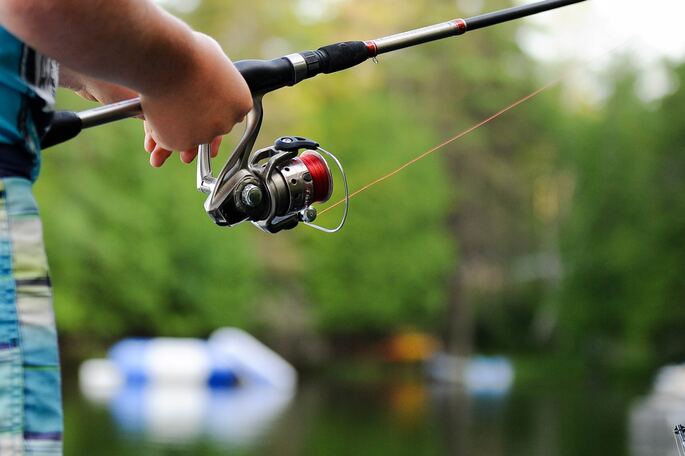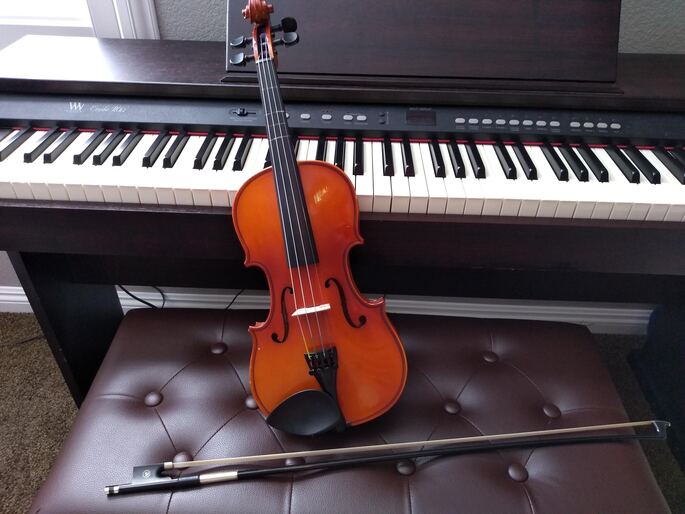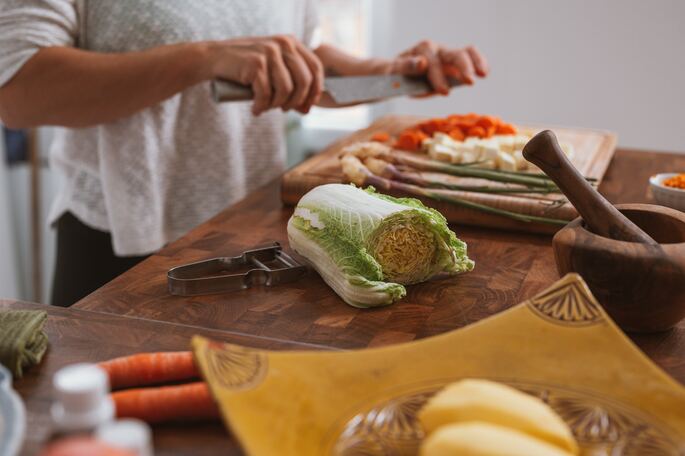Whether you’re into gardening, sewing, music, or collecting, there are many interesting and fun hobby ideas to try in your free time. Not only is it beneficial to engage in some type of hobby, but it’s also important to make sure your beloved hobby-related possessions or equipment are well-preserved and protected. Choosing the right type of home insurance is just one key component to consider when it comes to safeguarding the investment you’ve made in your hobbies. This guide has some helpful tips and advice to ensure that your hobbies-related items stay safe so you can continue to enjoy them for years to come.
Table of Contents
- Audio-visual equipment
- Arts and crafts
- Fitness, sports, and outdoor activities
- Music
- Tech and gadgets
- Automobiles and motorcycles
- Home brewing and cooking
- Gardening
- Securing your hobby investments with home insurance
- Final thoughts
Audio-visual equipment
Photography
Use a quality camera bag to protect your photography equipment – most importantly, your DSLR camera. Shield the camera from the elements when taking photos outside. When using a DSLR indoors, store it in a locked safe or other secured container to prevent theft. Camera lenses scratch easily, so make sure you keep them covered when you’re not shooting photos.
Remove the lens from your camera and store it in a safe, protective case out of direct sunlight. A lens cap should always be utilized. If your lenses get dirty, use some canned air to remove excess dirt or dust, then clean them with a soft-bristled brush. Keep tripods folded when not in use and dust them after each shoot. Store the tripod after disassembling it, and always check the leg locks before using it.
Filmmaking
Never use soap, water, or harsh chemicals to clean your camcorder. Keep it in a secure protective case when not in use. Store it with the cover closed in a clear, dry area with temperatures no higher than 65°F. Don’t use abrasive cleaners on lighting equipment – instead, wipe it using a microfiber cloth and some rubbing alcohol. Allow the equipment to dry before storing it, and keep cords neatly coiled to prolong their life. Place a plastic bag over the microphones before you store them in their case. Make sure you use protective cases with thick foam inside to prevent damage to the mic.
Podcasting
For podcasting microphones, always keep them clean and dry. Sanitize it with mineralized water and let the microphone dry for 72 hours before use. Spray compressed air around the pots and jacks of your mixers to keep cracks and crevices clean. If you don’t have a case, cover the mixer in between podcasts. Make sure your headphone earpieces stay clean and dry at all times, and store the headphones in a drawer or professional case when you’re not using them.
In addition to maintaining your podcasting equipment, consider exploring various podcast platforms to distribute your content or to find learning resources. These platforms not only offer a space to host your own podcasts but also provide access to a wide range of topics and experts, making them a valuable tool for both sharing and gaining knowledge.
Arts and crafts
Painting
Remove all leftover paint from your artist’s brushes by running them under cool water until it runs clear. Store the brushes in a container with holes in the lid or inside a breathable mesh case to allow for good ventilation. Most easels are made of wood, so consider applying oil to them every six months to keep them preserved and prevent breakage. Keep art canvases out of direct sunlight in areas with low humidity and clean them using a lightweight, dry cloth.
Sculpting
Clay should be kept in an airtight container and tightly wrapped in durable plastic out of direct sunlight. Use a wet sponge to re-dampen any clay that has dried out before reuse. Clean clay sculpting tools using rubbing alcohol and an old towel or cloth. Gently scrub until the built-on clay is removed, then dry the tools thoroughly with a clean, dry cloth. Remove rust by soaking the tools in vinegar, then scrub it away using a soft-bristled toothbrush.
Sewing
Remove dust from your sewing machine and oil all moving parts every one to two weeks. Use a sewing machine cover to protect it when you’re not using it. Roll sewing fabrics instead of folding them to prevent creases and wrinkles, then store them in bins or on a shelf. You can store sewing patterns in file folders or their original packaging. A magazine holder is also a great way to safely store both fabrics and patterns.
Jewelry making
Keep your beads organized by separating them by material, size, and color. Place them in clear containers with several compartments and a tight-fitting lid so they don’t spill. Store jewelry wire in clear binders or photo albums with plastic pockets to prevent tangling. You can also hang the wire from small hooks on the wall or on a pegboard for easy access. Keep your jewelry-making tools clean and store them in a large plastic bin or cosmetic organizer. When sourcing materials, visit your local jewelry store or craft shop to see their selection in person.
Pottery and ceramics
If possible, keep your kiln in the garage so it’s protected from the elements but still has proper airflow when you decide to use it. Clean kilns and pottery wheels after each use. You can store wheels in a clean, dry area where temperatures are fairly regulated to prevent exposure to humidity. Store pottery clay and glazes in airtight containers with tight-fitting lids so they don’t spill or get exposed to air and moisture. Label each container for easy identification.
Puzzles
Engaging in puzzling as a hobby, such as classic puzzles, wooden puzzles, or jigsaw puzzles, offers mental stimulation and relaxation. Keeping puzzle pieces together, especially if you have kids, can be challenging. To continue enjoying your puzzles, you can use a dedicated puzzle board or mat to provide a stable surface for assembly while preventing pieces from scattering.
Another tip is to organize pieces by color, shape, or pattern can streamline the solving process and minimize frustration. Storing puzzles in a secure container or bag ensures all components stay intact between sessions, maintaining the enjoyment of solving these brainteasers.

Fitness, sports, and outdoor activities
Weightlifting and cardio equipment
Keep all weights, including barbells and dumbbells, clean and oiled. Use a soft cloth to remove dust and debris, and never use harsh cleaners, as they could destroy the outer coating or finish. Wipe down workout benches regularly to remove sweat.
For workout equipment, including treadmills and exercise bikes, oil all bushings and bearings per the manufacturer’s instructions. Check that cables are in good condition, and if they aren’t, replace them right away. Have exercise equipment serviced regularly to ensure each machine remains in good, safe working order.
Yoga
To keep yoga mats clean, use special cleaners that are designed for this purpose. These cleaners remove sweat and debris from the mat, but if you’re in a pinch, you can also refresh the mat with essential oils or a fabric refresher spray. Clean yoga blocks with a washrag and some dish soap and water. If you have cork blocks, use just water without any soap. Hand wash your yoga straps in cold water with some dish soap, then let them air dry.
Fishing
Rinse fishing rods with clean water and allow them to air dry before cleaning smaller components. Store your rods in a storage rack to keep them from bending or getting tangled. Loosen the drags on your reels if you’re not going to use them for a few days before storing them with the rods. Use a toothbrush to clean hard lures and keep softer plastic lures and tackle secured in a plastic container so they don’t dry out.
Camping
Loosely fold tents and hang them up in a cool, dry place away from sunlight. Make sure tents are completely dry before storing them. Wash your sleeping bags as recommended on the care tag, and make sure they’re fully dry before storing them. Hang sleeping bags vertically so they maintain their shape.
Always clean camping stoves thoroughly, removing leftover food and grease before storing them. Place them in the garage or your kitchen cabinets to prevent rust.
Hiking
Clean backpacks in a front-loading washing machine using gentle detergent, then hang them upside down to dry or leave them flat. Avoid placing backpacks in the dryer. Treat hiking boots with leather treatment or fabric treatment – depending on the material – then store them in a closet away from sunlight and humidity.
Take care of outdoor gear and navigation tools like GPS trackers or compasses by keeping them in a protective case. Clean the screen or compass face regularly and store them safely at room temperature.
Water sports
Rinse your surfboard with clean water after every use and wax it regularly. Transport it in a surfboard bag and store it upright when you’re not using it. Remove loose items from kayaks before cleaning them, and use a garden hose to rinse them off. Let everything dry before storing them. Scuba gear varies based on the type of equipment used, so always follow the manufacturer’s instructions regarding the best ways to clean them. Test all scuba gear, especially oxygen tanks, before you go back into the water.
Cycling
Keep your bike clean by wiping off dirt and dust and lubricating the chain regularly. Store your bike safely in an enclosed garage on a rack when possible. Clean bike helmet shells and padding using clean water and a few drops of dish soap, then let everything air dry before storing. Keep all bike repair and maintenance tools clean and lubricated. Store them as you would other tools, either in a toolbox or the garage on a shelf. Let the tools air dry after cleaning them.
Racket sports
Use a tennis racket bag to store and transport your rackets to keep them in great shape. Never expose rackets to extremely hot or cold temperatures, as it can damage the strings and the shape of the racket. Replace worn strings as soon as possible. Store clean rackets in their storage bags in a temperature-regulated room out of direct sunlight.
Golf equipment
Clean golf equipment, including club grips, after every round. Clean the club heads using a bucket of warm water and some mild dish soap. Let the golf clubs air dry before you place them back in the bag, which should be located somewhere cool and dry.
If your home is on a golf course, make sure it’s located away from cart paths. If you’re near a cart path, add landscaping like bushes or trees to help muffle the sound. Remember that most golf courses are maintained early in the morning, so noise is something to consider.
Regular maintenance of your clubs is key, and if you’re serious about the game, learning how to reshaft a driver can be a valuable skill, allowing you to customize your clubs to your playing style and maintain their top condition.
Home courtyards
If you have a court at home, clean it and seal it every spring to protect the surface. Re-paint any lines that have become worn down so they’re clear and easy to see. Consider having the court regularly resurfaced by a professional paving company to prevent cracks and holes from developing.

Music
Musical instruments
Take drum kits apart before cleaning them. To clean guitars, use a soft cloth and follow instructions based on the material used. Never use soap and water to clean wood guitars, violins, cellos, or other wooden musical instruments, as it could damage the finish. Instead, a soft, dry cloth should do the trick. Store all of your instruments in their designated cases. If they don’t have a case, keep them in a cool, dry area away from UV light. Polish brass instruments regularly and clean mouthpieces often to prevent germs.
Recording gear
Always protect your amplifiers and microphones from exposure to dust. Keep this equipment ventilated and cool. Check all cables and connections for DJ gear and equipment and replace frayed or damaged cords. Wipe down your recording gear regularly using a soft, dry cloth to remove dust buildup, and store everything in its case when you’re not using it.
Music players
Dust records players with a soft cloth weekly, and remember to keep the lid closed when you’re not using it. Check the record player needle and replace it when it gets worn out. All other music players, including MP3 players, tablets, smartphones, and portable CD players, should be wiped off every week using a cloth or a can of compressed air.
Tech and gadgets
Gaming
Clean gaming consoles regularly to remove dirt, dust, and debris. Remove stubborn dirt with a damp cloth, and avoid using abrasive cleaners as they could damage the delicate parts of the console. Keep all gaming equipment in a well-ventilated area to prevent overheating. Wipe your gaming controllers with an alcohol wipe at least once a week to remove dirt and germs. Do the same with your VR headset so that it stays clean and free of grime. Store all of your gaming equipment in a cool, dry place and put smaller accessories in cases when not in use.
Drone flying
Keep drone engines clean and remove and clean the blades between each use. Use canned air to blow out the dust inside the drone’s motor. Perform regular inspections on your drone to ensure it’s in good condition and that nothing is loose or missing. Replace broken parts before flying the drone to prevent it from crashing.
Monitor the health of drone batteries and replace them when they stop holding a charge. Never let drone batteries overheat. Keep drone controllers clean by wiping them down using an alcohol wipe and storing them in a protective case to prevent damage.
Automobiles and motorcycles
Car restoration
Keep tools free of rust and corrosion and clean and store them to help prevent damage. Separate car parts and keep them organized. Take some time to clean each part thoroughly, removing any leftover rust. Scrub stubborn dirt or rust using an old toothbrush so it’s easy to get into the cracks and crevices of the parts. Always keep car parts organized so they stay with the correct car you’re restoring. Use plastic bins with labels for easy identification. Store car manuals in a temperature-regulated room away from direct sunlight.
Motorcycle maintenance
Consider an aqueous parts washer that utilizes a water-based solution and a high-pressure spray to clean motorcycle parts. An aqueous cleaner that uses agitation and immersion can also get your parts completely clean. Let each part air dry thoroughly before installing it on your motorcycle. Keep your tools clean and dry, and store them in your garage or a toolbox for easy access.
Preserve motorcycle repair manuals by placing them on a bookshelf and preserving them with a plastic cover so they don’t get damaged or eaten by insects. Ideally, all manuals should be stored indoors instead of in a shed or garage.
Model building
Keep model kits in their original boxes until you’re ready to use them. Gently clean each part before you paint the model so the surface is primed and ready for paint and labels. Wipe down completed models using a microfiber cloth to remove any dust. Keep lids on your model paints and glues tightly closed and store them in a cool, dry place. Always stir the paint thoroughly before using it so it’s mixed properly. Use a brush cleaner to clean model brushes and let them dry thoroughly between uses.

Home brewing and cooking
Home brewing
If you enjoy home brewing, make sure to properly store ingredients like grains, hops, and malt extracts to keep them fresh. Always clean your brewing kettles and bottling equipment thoroughly between batches using a sanitizing solution to prevent germ growth. Clean fermenters with water and a clean cloth and disassemble the unit to clean out the vales in between brews. Let your equipment soak for 20 minutes, then rinse it clean and let it air dry. Store bottles and bottle caps in a cool, dry place until you’re ready to fill them, then refrigerate your freshly brewed beer.
Cooking
If cooking is a favorite hobby for you, make sure you store pots, pans, and lids in a cabinet and not on the stovetop. Keep cooking utensils in a drawer and use an organizer to separate them. Use baking soda and a scrub sponge to clean the bottom of pots and pans with burnt-on messes. Remember to season cast iron cooking products with oil before using them. Re-season the cast iron every so often to keep it in great shape. Keep your knives sharp with a knife sharpener and a protective cover to prevent dulling the blades.
Baking
Wash your mixing bowls by hand with some warm, soapy water. Towel-dry the bowls and store them in a kitchen cabinet or pantry. Soak baking sheets with a mixture of one tablespoon of baking soda, a few drops of dish soap, and hot water. Let the baking sheet soak overnight, then rinse it clean with water and hand-dry it to keep it smooth and shiny.
Unplug stand mixers before cleaning, then hand-wash the attachments. Clean the mixing bowl and wipe the mixer clean of food residue. Wipe down the attachment hub, motorhead, and beater shaft to keep all components clean and germ-free.
Gardening
Indoor gardening
Wipe the outside of pots and plant stands clean using a wet rag to remove dirt and mud. Keep the dish underneath the pot clean. Check to make sure all drain holes are free of blockages so your houseplants can properly drain excess water from the bottom. Never wash clay pots or delicate ceramic pots and plant stands in the dishwasher.
Check the specific type of care required for your indoor plants. Place them by a sunny window if they need more sunlight and away from windows if they’re low-light plants. Fertilize indoor plants as needed to keep them healthy.
Outdoor gardening
Keep shovels clean by hosing them off with a garden hose, then let them air dry and store them inside a shed or a garage. Hand wash all pruners and small outdoor gardening tools, then dry them off with a clean rag and store them away. Keep seeds in a cool, dry part of the home, away from moisture and sunlight. If you dry your seeds, you can store them in airtight containers. Be sure to label the containers so they’re easy to identify.
Protect outdoor plants by adding mulch and using eco-friendly fertilizers and pest control. Check your local hardiness zone to determine if you have the right plants based on your area and climate.
Securing your hobby investments with home insurance
Tailoring home insurance to your hobbies
Make sure you have the best level of coverage on your home insurance policy to protect valuable items like gear, equipment, and collectibles. Home insurance can protect you in the event of unforeseen damage from fire, natural disasters, or theft. Customize your home insurance policy to adequately cover your specific hobbies. Ask about additional riders or coverage options that may cover the replacement cost of valuable equipment, rare art, and more.
Alongside tailoring your insurance for hobby-specific coverage, there are strategic ways to reduce home insurance costs without compromising on protection. Consider installing security systems, fire alarms, and smoke detectors, as these can lower your risk profile, leading to potential discounts on premiums. Regularly reviewing and updating your policy to reflect current values, especially after significant lifestyle or hobby equipment changes, ensures you’re not overpaying. By being proactive and informed about these options, you can secure comprehensive coverage for your hobbies while managing the overall affordability of your home insurance.
Documenting your hobby investments
Remember to document your hobby investments for insurance purposes. Make a comprehensive list of everything you own and keep all receipts, especially for high-ticket items. Maintain records of your equipment and any repairs you’ve made. Track the value of your collectibles to determine if you’re getting the right level of coverage based on the replacement value.

With continued care, proper maintenance, and the right storage, you can protect your hobbies and your hobby-related items for years to come. The methods you use to clean, maintain, and store these items will help you get continued enjoyment from them. It’s important to have the right level of home insurance coverage for additional protection that preserves your hobbies long into the future.




